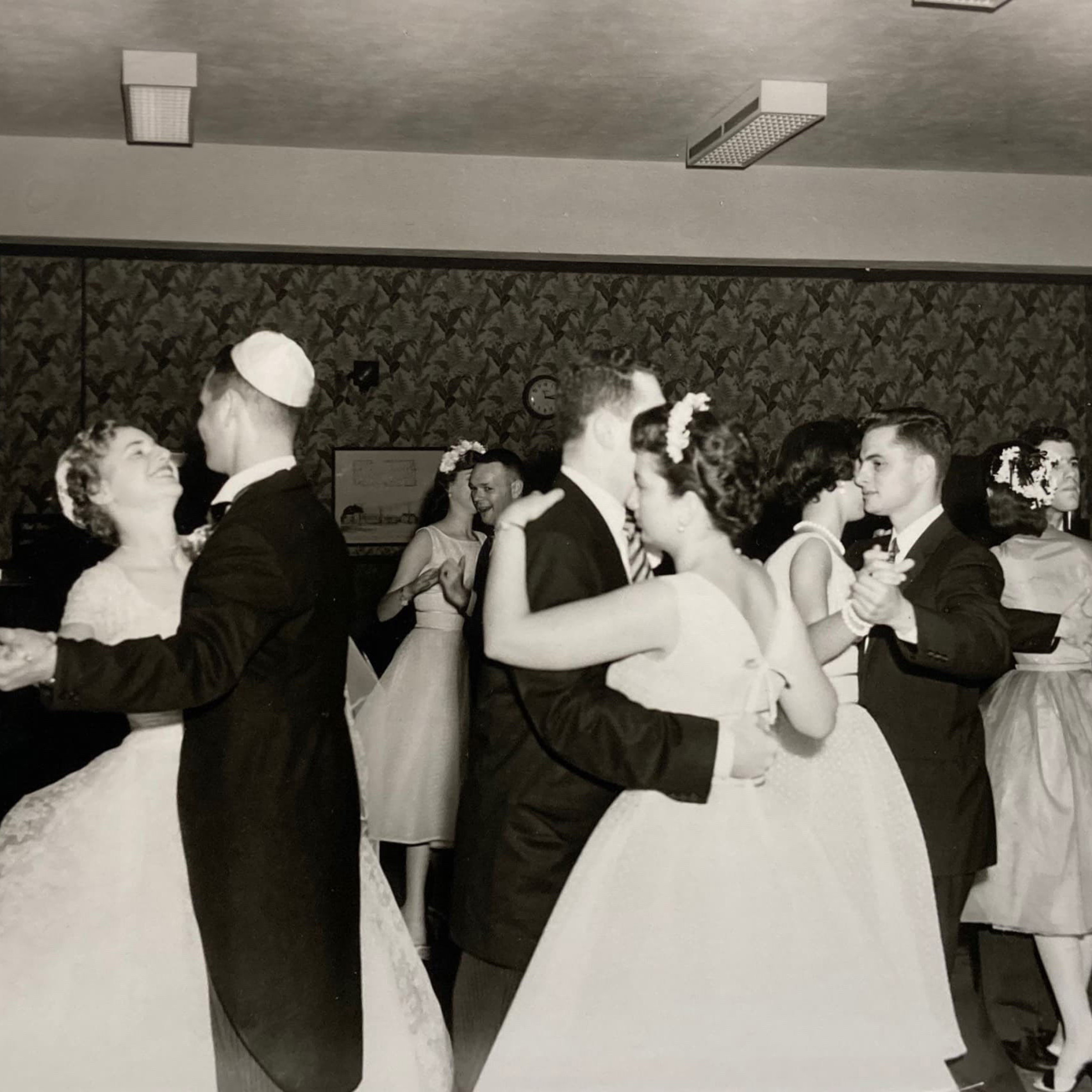Yiddish to the Core: Wedding Music and Jewish Identity in Postwar New York City

|
Max Weinreich Fellowship Lecture in East European Arts, Music, and Theater
The Ruth and Joseph Kremen Memorial Fellowship Admission: Free |
If you attended a typical American Jewish wedding in the 1950s, you might have noticed some departures from tradition, such as a photographer buzzing around the rabbi, a floral wedding canopy, or “kosher style” catering. The modern formula varied from one wedding to another, but one thing was certain: if it was a Jewish wedding, you danced a hora. Even as Jews became increasingly Americanized and abandoned older practices, they held on to Jewish dances and dance music as an easy and accessible way of articulating their Jewish identity at a public event, in front of their family and friends. Jewish music and dance underwent significant changes during the postwar period, absorbing strong influences from American popular music and Israeli folk songs. Nonetheless, dances like the hora, freylekh, and sher remained “Yiddish to the core.” For many American Jews, these dances became a symbol of cultural continuity, and one of the important elements that defined their wedding as Jewish.
In this talk, Uri Schreter will explore the evolution of Jewish wedding music in the early postwar period across different sectors of New York’s Jewish community. We will discuss the relationship between diverse musical genres such as klezmer, Israeli folk song, swing, and Latin music, and learn how the choice of musical repertoire intersected with factors such as social class, religiosity, and political affiliation.
About the Speaker
Uri Schreter is an interdisciplinary musicologist, composer, keyboardist, and film-editor. Born in Tel Aviv, he is currently pursuing his PhD in historical musicology at Harvard University. Prior to Harvard, he studied at Tel Aviv University, where he earned a BA in composition and musicology, and an MA in modern European history. His current research project explores the politics of Jewish music during the early postwar period. His scholarship has been supported by the American Musicological Society, the Memorial Foundation for Jewish Culture, and the Feinstein Center for American Jewish History, and he is the recipient of the 2022–23 Ruth and Joseph Kremen Memorial Fellowship in East European Arts, Music, and Theater at the YIVO Institute for Jewish Research. Outside of academia, Uri is a composer, pianist, and film editor, who has collaborated with numerous artists in Yiddish culture and beyond.




